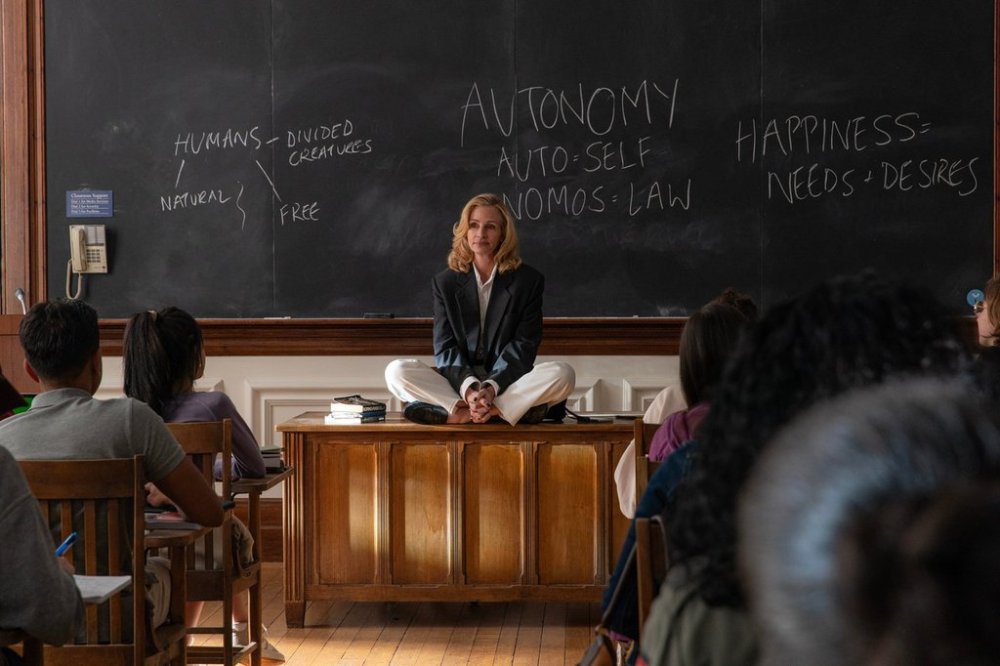Movie Review: ‘After the Hunt’ is less hot-button farce than tragedy
Advertisement
Read this article for free:
or
Already have an account? Log in here »
We need your support!
Local journalism needs your support!
As we navigate through unprecedented times, our journalists are working harder than ever to bring you the latest local updates to keep you safe and informed.
Now, more than ever, we need your support.
Starting at $15.99 plus taxes every four weeks you can access your Brandon Sun online and full access to all content as it appears on our website.
Subscribe Nowor call circulation directly at (204) 727-0527.
Your pledge helps to ensure we provide the news that matters most to your community!
To continue reading, please subscribe:
Add Brandon Sun access to your Free Press subscription for only an additional
$1 for the first 4 weeks*
*Your next subscription payment will increase by $1.00 and you will be charged $20.00 plus GST for four weeks. After four weeks, your payment will increase to $24.00 plus GST every four weeks.
Read unlimited articles for free today:
or
Already have an account? Log in here »
It’s not so often that the font of a movie’s opening credits is, itself, a provocation.
But in Luca Guadagnino ’s muddled but darkly absorbing “After the Hunt,” the white Windsor Light Condensed lettering against a black background, with cast in alphabetical order and soft jazz playing, is immediately recognizable as the style of a Woody Allen movie opening.
In the juggling act to follow in “After the Hunt,” where Guadagnino will playfully twirl a twisting narrative of alleged sexual assault, cancel culture, privilege in academia and Gen Z victimization, the credits are not so much an opening salvo than they are an introductory wink.

Like many an Allen film, “After the Hunt” is set among a well-educated, self-involved class. It takes place around Yale University. But unlike Allen’s anxious, existential, chattering characters, Guadagnino’s cocktail party collection of professors and students is a more scheming and unpleasant lot.
That includes a philosophy professor, Alma Imhoff (Julia Roberts), on the precipice of tenure, her friend and department colleague, Hank Gibson (Andrew Garfield), and Imhoff’s star pupil, a Ph.D. student named Maggie Resnick (Ayo Edebiri), who after a party at Alma’s house accuses Hank of sexual assault.
Guadagnino’s film, shot by Malik Hassan Sayeed, is somberly and flatly lit and rife with reflections. Under these drab surfaces, the central characters of “After the Hunt” — an ensemble of singularly charming actors who here have drained away much of their natural charisma — go at each other on everything from Foucault to feminism in a psychological battle set across a #MeToo minefield.
That, at least, is the promise of “After the Hunt.” But Guadagnino’s dour and languid film, scripted by Nora Garrett, only fitfully coheres as the conversation piece it aspires to be. Its plot turns can be rash or implausible, and the movie increasingly feels like ideas and set pieces strung tenuously together.
Yet I also enjoyed the prickliness of “After the Hunt.” Though there’s a strong anti-woke vein to it, Guadagnino’s film is more about how seemingly quite different generations have much more in common than they might appear. The cultural debates depicted in the movie are often so colored by moralistic superiority, but that’s not the case here. Everyone is kind of rotten in “After the Hunt.”
That’s especially unusual for Roberts, whose Alma is far more complicated a character than she normally tackles. Alma is esteemed, fiercely intelligent, ambitious and hard to read. Her husband, a psychiatrist named Frederik (a fabulous Michael Stuhlbarg as combustible cocktail of cuckold and cook) worships her, but her affection is less evident.
But shorn of her natural ebullience, Roberts’ restraint of the role comes off more like weariness. That adds to some of the off-kilter tenor of “After the Hunt,” but it’s hard not to imagine someone like Cate Blanchett in the part.
“When did offending someone become a cardinal sin?” Hank asks at the party that opens the movie.
A sign of what Guadagnino might be up to comes not long after, after Maggie has alleged the assault. Alma goes to meet a distraught Hank at a local restaurant. While they hash out what’s true and what’s fiction in Maggie’s account, it’s hard not to notice the mirrors that surround Hank.
The real mirror of “After the Hunt” is Alma and Maggie. Edebiri is here a kind of stand-in for Gen Z, and her case expands to include a wider range of issues of inclusivity and othering. As things spiral and Maggie’s case leads to increasing intensity on campus and in Alma’s personal life, Alma shifts from Maggie’s mentor to something more like a foe. But Alma’s own past begins to play a role in the fallout, adding a new frame to “After the Hunt” that casts Alma and Maggie’s plights in a different light.
Is this a good time? Not especially, though Garfield is great in a rage. Glib insertions don’t help. In one scene, when Alma meets a fellow faculty member (Chloë Sevigny) in a bar, a Smiths song plays and she seems surprised a Morrissey tune isn’t outlawed.
I’m not sure “After the Hunt” has too much more to say than that shrug-of-the-shoulders scene. But “After the Hunt” deserves credit not so much more wading into these hot-button topics, but for trying to find its own way through them. It’s not a #MeToo procedural but more like a tragedy. When “optics over substance” governs all, as one character laments, no one lives happily ever after.
“After the Hunt,” an Amazon MGM release, is rated R by the Motion Picture Association for language and some sexual content. Running time: 139 minutes. Two and a half stars out of four.
